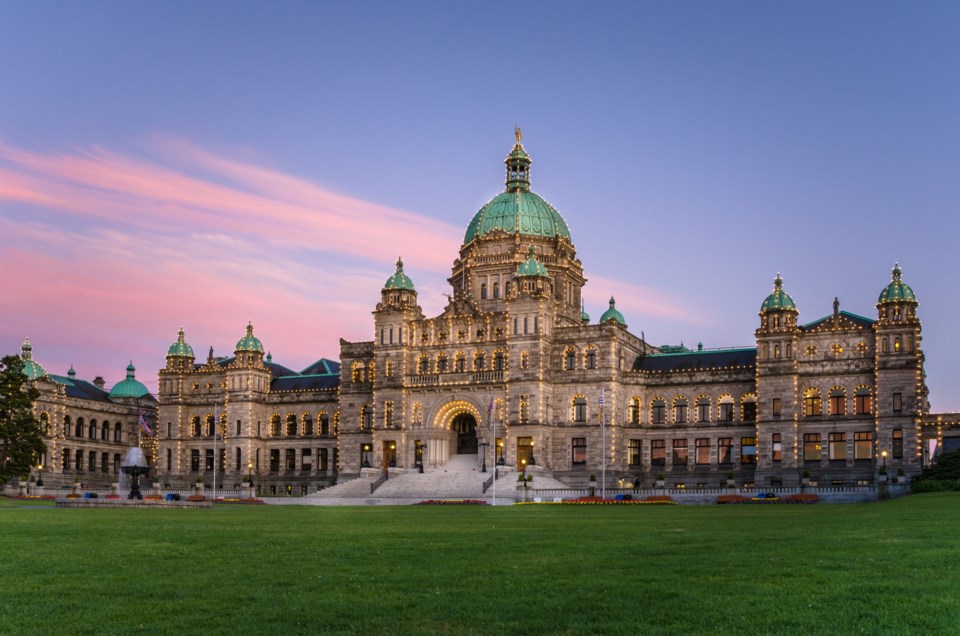Monday will see the first substantial session since last year’s snap election – and the next few months will be one of the most unusual sittings on record.
In normal times, spring follows a set calendar: the house returns in February, starting with a Throne Speech, given by the Lieutenant-Governor. The following week, the government presents its budget. Amongst all the various other bills, debates, and sideshows (there promise to be fewer sideshows under the new Speaker), the budget is the centrepiece: each minister has to defend the estimated budget of their ministry, line by line, on live TV. It’s a process that takes weeks.
As with so many things in 2021, several things will be very different.
For the first time, Premier John Horgan will face two female leaders – Official Opposition leader Shirley Bond and Green leader Sonia Furstenau. Both agree, the tone of this session is likely to be different than much of last year. Gone are the days of laying down arms and cooperating with a minority government.
“There certainly was a time during the pandemic where looking at a collaborative approach was essential,” says Bond.
“We made a conscious and I think appropriate decision to unanimously agree to a package of support, to work together, first and foremost, and deal with the health and welfare of British Columbians. I think we made the right call at the time.”
Furstenau, whose party the NDP no longer need support from, plans to highlight issues like accountability and transparency.
“It’s been eight months since the house adjourned at the end of July. And we will have had eight days of a session in those eight months,” says Furstenau.
“That means there's very little opportunity for opposition members to ask questions on the record, which is a really important way of holding government to account and pushing for transparency and an understanding of what is informing decision-making.”
“We’re a year into the pandemic now,” says Bond, “there are legitimate questions being asked by British Columbians. And I think that government needs to not only hear those questions, but be held accountable for them.”
The other big difference will be the format of the session itself – which is actually two different and distinct sittings. Here’s where it gets technical – no! Don’t skip past this part. At least give me a paragraph or two – there’s some 4/20 jokes coming. Trust me.
On Monday, the legislature resumes sitting for four weeks. Officially, it’s not a new session, but a resumption of the previous sitting.
After a two-week break, on Monday April 12, the house returns – this time for a new session, with a Speech from the Throne. Eight days later, Finance Minister Selina Robinson will deliver her first budget – yes, on 4/20. Probably a better choice than April 1st, but we shouldn’t expect any mercy from wits across the country - anticipation will be high. (See? Not my best, but there's more.)
It may seem like esoteric hair-splitting, but the session’s odd layout – which, again, is actually two separate sessions – does have some real-world implications.
Any legislation either still on the table or introduced in March must be introduced, debated, and passed before the house rises for the two-week break. A Throne Speech effectively clears the decks – any bill, at any stage of development below “law” is wiped from the books.
“In essence, we're going to have a government that's filling five weeks of time as they lead up to a throne speech,” says Bond.
After the smoke clears from the budget (told you), estimates will have to be completed before the house rises – this time for real – on June 17.
Normally at this point in the calendar, the legislature has been sitting for almost a month, long enough that people are already starting to get testy. And in a pandemic, the less face-to-face time, the better. But not having an opportunity to ask questions of the government for long periods of time is unhealthy, too.
“There’s a growing kind of lack of real sense of how government is making its decisions, what's informing it,” says Furstenau, especially in a pandemic when “decision-making should be very transparent to people, particularly at a time when we need that level of trust in government right now.”
“I can assure you, says Bond, “We're going to do our job as the Opposition.”
Maclean Kay is Editor-in-Chief of The Orca
SWIM ON:
- Maclean Kay last delivered a spicy take on the Skip the Dishes' "BC Free" drama.
- This Spring has to be less dramatic at the legislature than last year - doesn't it?
- It will probably look a little more like the emergency sitting of last March - if less shell-shocked.



